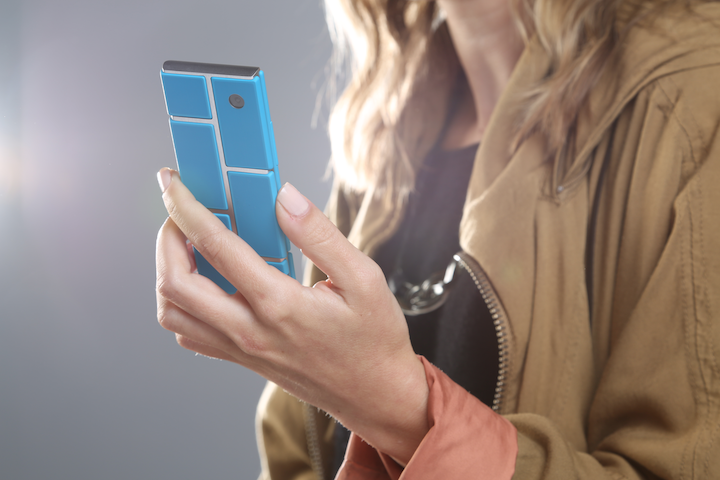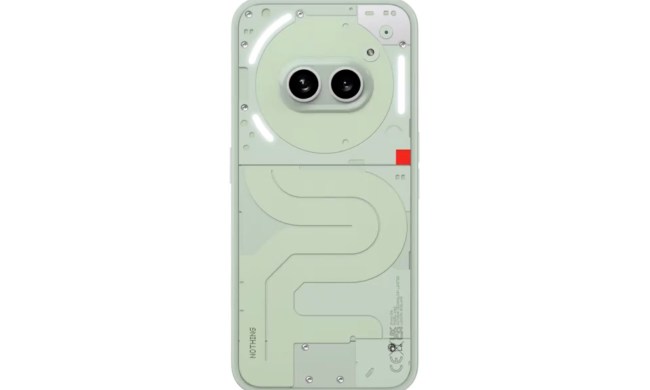
Updated on 08-21-2015 by Malarie Gokey: Added in statement from Google that Project Ara’s failed drop test comment was a joke. Google says it found a better way to hold the components together.
Through a set of tweets, Google explained that the delay was due to the company having more iterations of the smartphone that it had anticipated. As such, Google decided to delay the release for sometime next year:
When? 2016. #yeswearelate #ProjectAra
— Project Ara (@ProjectAra) August 17, 2015
Why? Lots of iterations … more than we thought. #ProjectAra — Project Ara (@ProjectAra) August 17, 2015
Google further explained that Project Ara’s implementation of electropermanent magnets, which would theoretically allow for easy removal of modules while firmly remaining in place when not swapped, won’t be used on the final product. The search giant initially tweeted that Project Ara “failed the drop test,” but Google later said that tweet was a joke.”BTW #FailedTheDropTest was a joke,” Google tweeted. “Didn’t fail. We have been configuring a new solution. It’s better too. #WorkingOnOurHumor”
No more electropermanent magnets. #ProjectAra #FailedTheDropTest
— Project Ara (@ProjectAra) August 19, 2015
In the place of the magnets is what the company calls a “signature experience,” though Google didn’t expand on the phrase. Meanwhile, Project Ara’s design will also go under the knife, with some of the core functionality grouped together in order to have more space for more modules:
We want to give users more space for more modules. So we grouped the core functionality to free up space. #ProjectAra #ThinkingOfYou
— Project Ara (@ProjectAra) August 18, 2015
Unfortunately, this also means that the company’s test launch in Puerto Rico is not in the cards for this year, though Google said “this is not goodbye,” meaning the Mountain View company might still look at Puerto Rico as a launch site in the future. In the meantime, Google is also taking a look at a few locations in the U.S. as possible Project Ara launch locales:
Where are we headed next? We are looking at a few locations in the U.S. #ProjectAra #newlocationcomingsoon
— Project Ara (@ProjectAra) August 17, 2015
Project Ara’s claim to fame is its ability to swap out different components, such as the camera, processor, and battery, without replacing the entire phone. After much anticipation, Google finally showed Project Ara power on for the first time during January’s Project Ara Module Developers Conference. During the event, Google revealed it would have used the aforementioned test launch in Puerto Rico to gauge what works and doesn’t work with consumers, as well as to improve the hardware using the feedback Google would have received.
Project Ara’s latest appearance was during May’s Google I/O, the company’s annual developer conference. Unlike during January’s event, where Google only showed the phone powering on, Google I/O had the company powering on Project Ara and properly showing off the hot-swappable modules by swapping in the camera module to take a picture of the crowd.
Google didn’t specify when in 2016 it will launch Project Ara, though those looking to get their modular smartphone fix sooner can take a look at the Fairphone 2, which plans to take things in a slightly different direction by acting to rid itself of conflict minerals at a realistic pace.
Updates:
Updated on 08-19-2015 by Williams Pelegrin: Added in information of Project Ara’s failed drop test and Google making more space for more modules.


